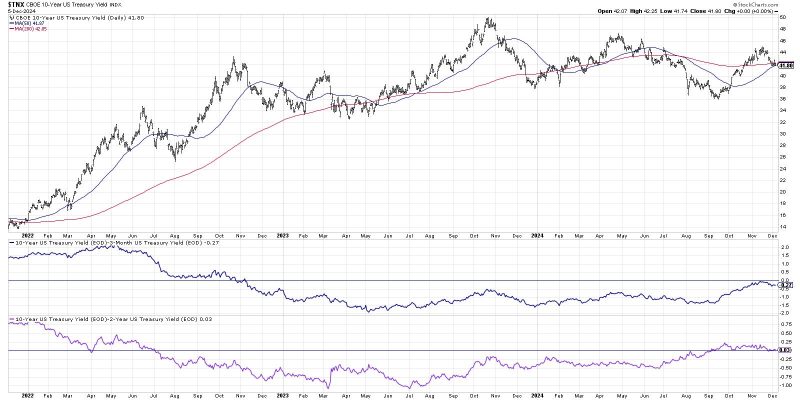Investing in Exchange Traded Funds (ETFs) is a popular way for individuals to gain exposure to a diversified portfolio without the need for a large amount of capital or extensive financial knowledge. In the current economic environment, where the yield curve is normalizing, there are opportunities for investors to capitalize through strategic ETF investments. Two ETFs that show promise in this scenario are discussed below.
1. **iShares 1-3 Year Treasury Bond ETF (SHY)**
The iShares 1-3 Year Treasury Bond ETF (SHY) is a fund that seeks to track the investment results of an index composed of U.S. Treasury bonds with remaining maturities between one and three years. As the yield curve normalizes, short-term interest rates are expected to increase at a faster pace compared to long-term rates. This could benefit SHY as the value of shorter-term bonds tends to be less sensitive to interest rate changes.
Moreover, investors seeking a safe haven during periods of economic uncertainty or market volatility often turn to U.S. Treasury bonds. SHY provides exposure to these highly liquid and government-backed securities, offering a potential hedge against market downturns.
2. **Vanguard Real Estate ETF (VNQ)**
The Vanguard Real Estate ETF (VNQ) is designed to track the performance of the MSCI US Investable Market Real Estate 25/50 Index, which consists of stocks of U.S. companies within the real estate sector. As the yield curve normalizes, the real estate sector may benefit from the favorable economic conditions associated with a more balanced interest rate environment.
Traditionally, real estate has been considered a solid investment during periods of rising interest rates, as real estate values and rental income often increase alongside inflation. VNQ provides investors with exposure to a diversified portfolio of real estate companies, offering the potential for capital appreciation and dividend income.
In conclusion, investing in ETFs such as SHY and VNQ can be a strategic way to capitalize on a normalizing yield curve. However, it is essential for investors to conduct thorough research, consider their risk tolerance, and consult with a financial advisor before making any investment decisions. By staying informed and proactive, investors can position themselves to thrive in changing market conditions.
